Meet Dr. Jennifer Perusini
Neuroscientist and Entrepreneur
Dr. Jennifer Perusini is the founder and CEO of Neurovation Labs, a New York-based biotech startup. Neurovation Labs was born out of Dr. Perusini’s research, where she and her team discovered a brain biomarker that can be targeted to both diagnose and treat post traumatic stress disorder (PTSD), revolutionizing mental health care.
STEM to the Sky
Jul 20, 2021
- Were you always interested in STEM as a child?
- How well did your experiences in college and graduate school prepare you for your current role?
- How did you start Neurovation Labs and what was the inspiration behind going down the entrepreneurial pathway?
- What is the main goal of the company and what are the products currently being developed?
- What are your responsibilities as the CEO of Neurovation Labs?
- Do you have any advice for maintaining a healthy work life balance?
- What do you enjoy the most about being a scientist and entrepreneur?
- What do you think is the most challenging aspect regarding your career?
- What are your thoughts about working in academia vs. private industry?
- What skills would you say are important for a role like yours?
- What would you say to a student who’s interested in pursuing a career that combines neuroscience with entrepreneurship?
- Why did you decide to join Women in Learning and why is it important to have female representation in science?
- Why do you love working in STEM?
Were you always interested in STEM as a child?
I was always interested in science. I remember in kindergarten looking at earthworms and I loved it. But, I also had a bunch of other interests too: I did dance and gymnastics, and I loved art and painting. I was also just very studious. No matter what subject I needed to get that A. That was the kind of pressure I put on myself, even as a kid.
When I started really getting into fear neuroscience and PTSD, it was really more of a personal thing. I’m a lifelong New Yorker, so I lived through the aftermath of 9/11. Where I grew up about 30 minutes north of Manhattan, we had such a high number of first responders lose their lives in the days after the attacks. I watched people in my community lose their loved ones. At the same time, I had lost my mother, my grandfather, and even my dog all in that same month surrounding 9/11.
I started seeing how some people really lost their way after such a horrible tragedy and how some people thrived and threw themselves into their work and hobbies. I wanted to know what was going on in the brain to make us so different and have such different coping skills. That’s really when I got into studying fear in the brain and PTSD.
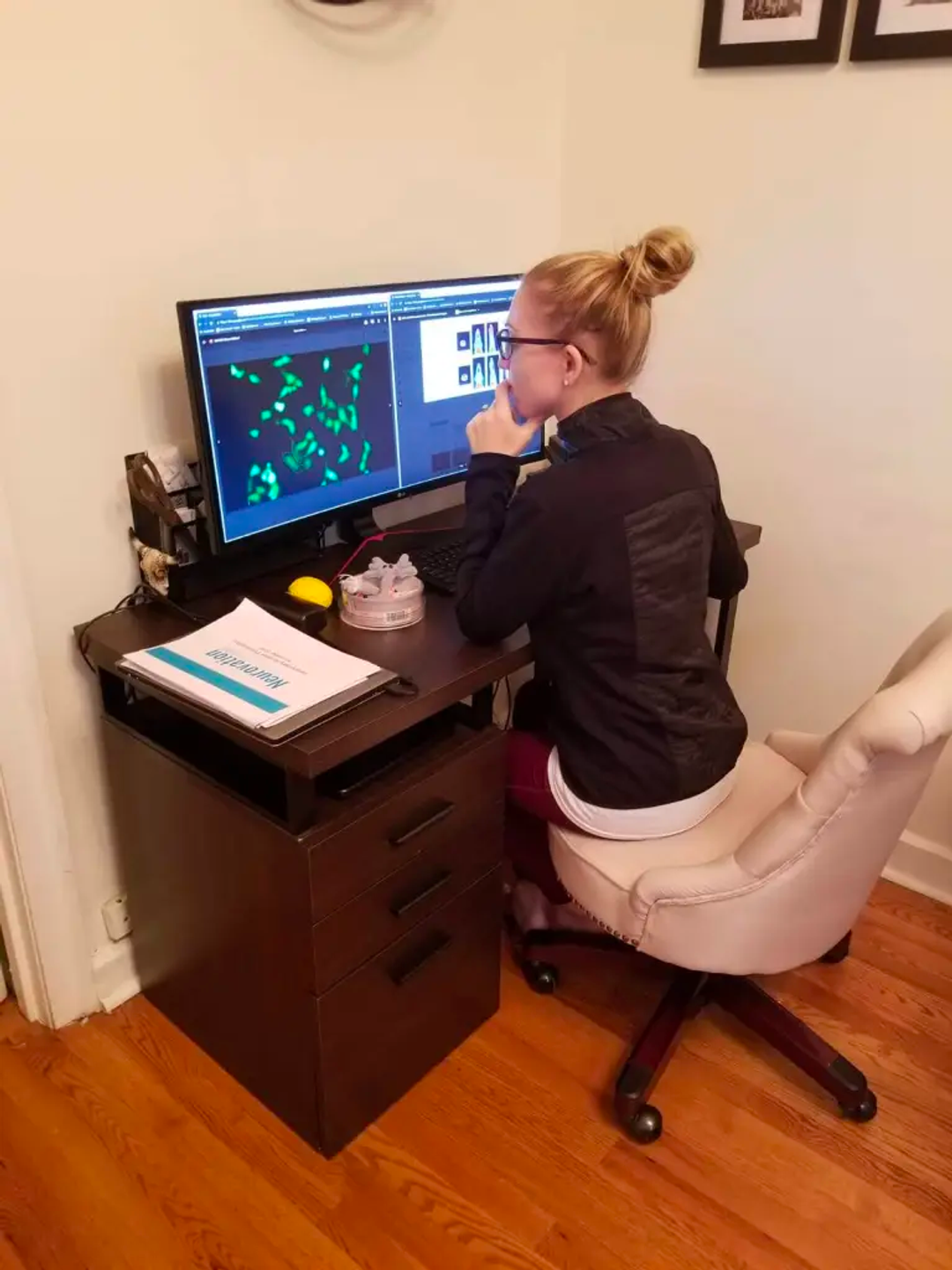
(Credit: Jennifer Perusini)
How well did your experiences in college and graduate school prepare you for your current role?
My major in college was Neuroscience & Behavior. I went to Barnard College, which is the all women’s college of Columbia University. I loved every second of it. Right after graduation, I made the trek out west to UCLA where I did my doctorate in Behavioral Neuroscience, which was interdisciplinary within the Neuroscience and Psychology Departments. In graduate school, I had this preclinical rodent model of PTSD, and that’s where I really got into the nitty gritty of studying the brain and how these fear memories are held there.
I would say the experiences prepared me in some ways but not in others. Especially in this country, schooling is not necessarily amenable to leaving academia, especially when you go to get your PhD. The typical track is professorship and running a lab. In college, unless you go to business school or take business classes, I’m not sure I would have known how to translate my neuroscience knowledge into running a business. The past academic year, I became chair of my college’s entrepreneurs network. So, one of my goals is to bring entrepreneurship to campus and start teaching people about business and the skills they need to go off on their own with their good ideas.
How did you start Neurovation Labs and what was the inspiration behind going down the entrepreneurial pathway?
Neurovation Labs was really born out of my research. We essentially discovered a brain biomarker of PTSD. This protein in the fear center of the brain is basically elevated stably after a traumatic event. Now, we’re leveraging that discovery to develop both the diagnostic and the treatment for PTSD within the company.
This wasn’t something that I thought I would ever do; I always saw myself going more into industry, like a pharmaceutical company. But, we just saw such translational aspects of the research. So, after my short postdoctoral fellowship, I decided to just go out on my own and see if I could start the company. I did this with my past doctoral advisor, as well as a friend who is both an engineer and a patent lawyer.
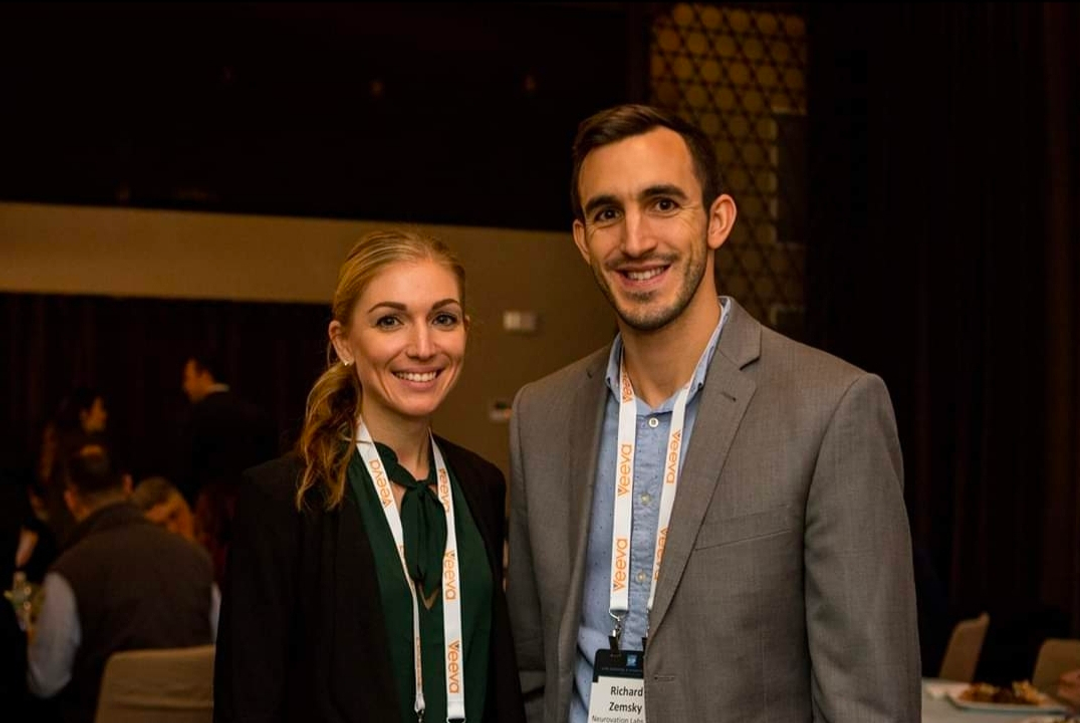
Co-founders Jennifer Perusini (CEO) and Richard Zemsky (COO) of Neurovation Labs (Credit: Jennifer Perusini)
What is the main goal of the company and what are the products currently being developed?
The main goal, not just with the company, but in my whole career, is to revolutionize mental health care. I view mental health disorders and psychiatric disorders as physical disorders with physical underpinnings. We should be able to diagnose and treat them with accuracy just like we would for strep or, even more timely, COVID.
Another goal, especially now as I’m working more with the military, is to end the stigma on mental health. It’s such a big part of our culture that it needs to be addressed. If we don’t address it, we’ll never find meaningful solutions. With the company, we have both the diagnostic and the treatment. They’re separate product development tracks, but they go hand in hand. The diagnostic is a radiotracer to be used in something like a PET scan where we can visualize the biomarker in the brain. Then, the treatment targets that same biomarker and will bring it back down to baseline levels.
What are your responsibilities as the CEO of Neurovation Labs?
I wear many hats. I went from pure neuroscience research to doing everything. I’ll still analyze data in our labs, but I don’t actually do research in the lab because we actually contract out our research. I’m based in New York, but we have labs spread across the country. It’s good quality control and quality assurance to have external labs run some of the research.
I’m constantly speaking at conferences, taking investor calls, attending meetings, and writing emails. You’re never not fundraising as a startup. I also communicate with my program managers at the Air Force and in the army. Lately, I’ve been very busy attending my Army accelerator program in the afternoons. I’m always reading new scientific papers, keeping up with the competition, communicating to my team and my board, and delegating and reviewing contracts.
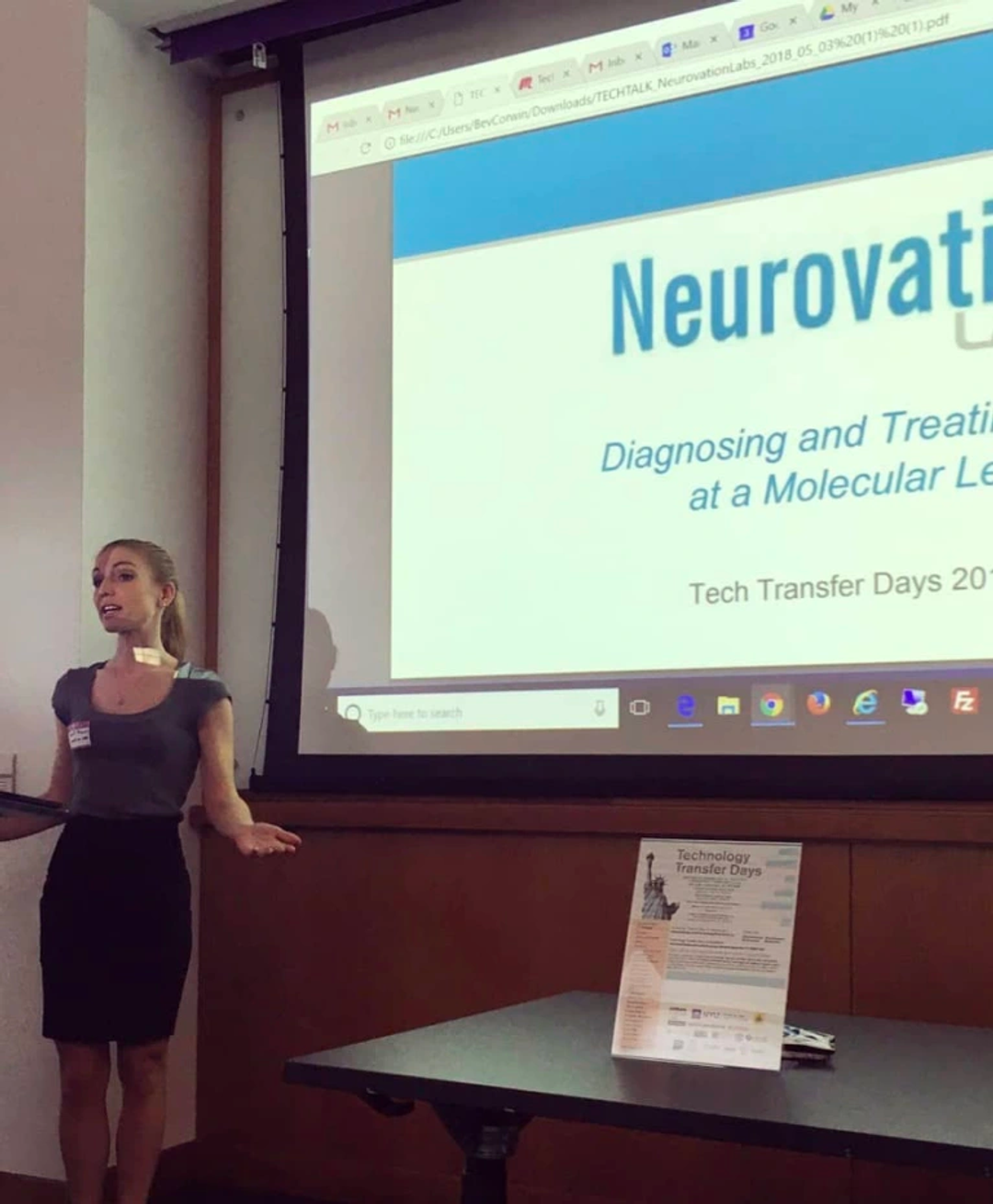
(Credit: Jennifer Perusini)
Do you have any advice for maintaining a healthy work life balance?
I really enjoy what I do, and I am very lucky that I am flexible in that I can really work from anywhere. I travel to the labs and conferences, but my home base is really in my New York City apartment. When there’s an opportunity to travel and spend more time with my husband and my family, I take it and I just take work on the road.
On the flip side, I’m never not on the clock. If we happen to go away for the weekend and I get a work email, I have to take it. That doesn’t really bother me. I really love what I do, so exploring a new place in the world while keeping up with my work is actually more relaxing than just turning everything off and laying on the beach somewhere. As long as you love what you do and you don’t mind taking it with you, then you can definitely strike a balance.
What do you enjoy the most about being a scientist and entrepreneur?
I really just like being the boss, I like having control over my own schedule, and it’s such a cool experience to not have any boundaries. If I want to explore a new research avenue, I can, as long as there’s funding for it. I also enjoy wearing all those hats and working in every aspect of the company because I’ve learned so many new skill sets that I don’t think I would have necessarily if I had continued to work in a lab.
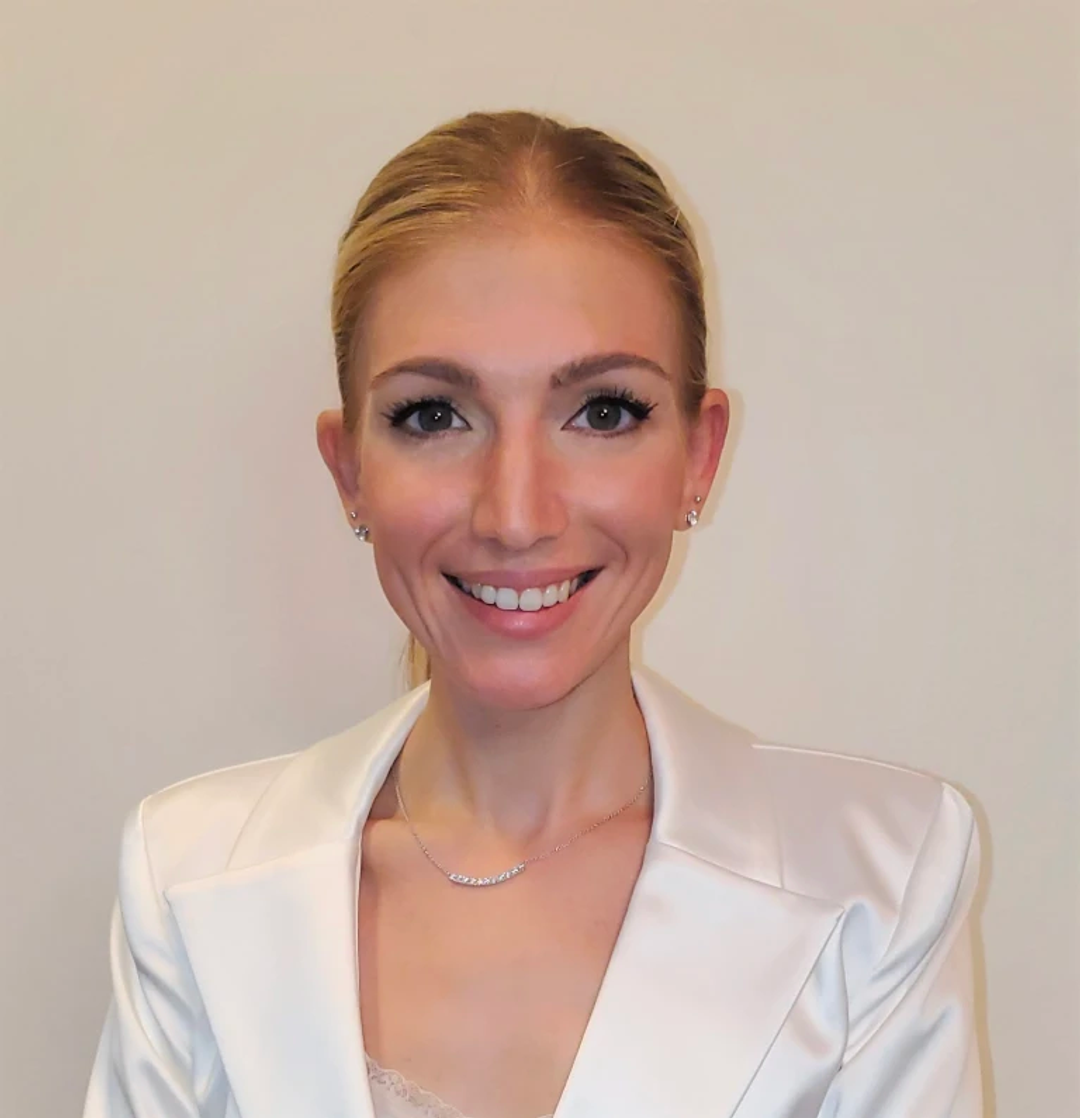
(Credit: Jennifer Perusini)
What do you think is the most challenging aspect regarding your career?
It is incredibly cutthroat to be in business. One, you have to be willing to pivot and be flexible. The biotech world changes all the time with what’s hot and what’s not. In the very beginning when I started my company, it was right around the time that a very infamous diagnostic company went under, so no one was interested in my diagnostic product. But now, in the post-COVID world, everybody wants an objective diagnosis for every disorder.
You also have to really have a tough skin. I have hundreds of meetings throughout the years with investors and you hear “no” a lot. There’s no sugarcoating and people tell you how it is. I’ve learned to take all criticism in stride and try to use everything as a learning experience even if the feedback isn’t given in the most positive way.
What are your thoughts about working in academia vs. private industry?
I don’t have any pharmaceutical experience, but working in a startup and working in an academic lab is incredibly different.
I think there’s a lot more red tape and bureaucracy in academia. You are always working for someone. Even with running your own lab, there’s always somebody to answer to whether it’s the university, your grants, or the government. That’s not to say that there isn’t any red tape in the company as well, especially now that we do have government contracts.
I think there are similarities as well. I feel like in both the startup world and the academic world, there’s this shared passion to get your work done and really caring about the underlying goals of whatever disease model you’re studying.
What skills would you say are important for a role like yours?
It is so important to be flexible; you never know when you have to pivot. I think it’s also important to be incredibly extroverted or at least be able to turn on that bubbly side and learn how to exude tons of confidence. Something that I’ve learned, especially early on, is that investors invest in you and the team and not necessarily just the product that you’re trying to make. Having that tough skin and learning to take criticism is another important skill.
What would you say to a student who’s interested in pursuing a career that combines neuroscience with entrepreneurship?
At least with neuroscience, I always tell people to just go for it. I think it’s the most amazing field, and it’s relatively new in terms of scientific subfields. There’s so much left to be discovered in the brain, and there’s so much translation that can happen to the clinic.
In combining neuroscience with entrepreneurship, you walk a fine line. You can’t go into grad school thinking that you’re going to find something groundbreaking and turn it into a company. I think it’s a recipe for disaster.
Because there’s such a spotlight on smaller biotech companies these days, you can get involved. Intern at a startup to see what the day-to-day is like. I think a lot of people would be surprised by what little research actually goes on and how much business there is to learn. See if you can attend programs in your region for startups. They’re very open to all different people at all different levels of expertise. For example, in New York, they have things like BioLabs, which have very cheap or free seminars and networking events.
For people that are interested in science but are much more business minded, I don’t necessarily recommend going to grad school and getting your doctorate. It’s always a valuable degree, but I think if you like the business side more, business school is great. If you like science and want to learn how to protect your assets, law school is great. There are so many different options.
Why did you decide to join Women in Learning and why is it important to have female representation in science?
Dr. Perusini is a Director of the 501(c)(3) nonprofit, “Women in Learning”, which supports the advancement of women in science.
“Women in Learning” is 11 years old. It was started by a grad student in my past lab from UCLA, so I quickly joined. Going to an all women’s college, I had a lot of resources for her. It grew from this luncheon with a few people back in 2011 as part of this conference called Pavlovian Society. Now, we have programming all over the country.
Female representation is just so important. I think we saw the gap at the Pavlovian Society annual meeting that we’d go to. We loved our mentors and advisors so much, but we noticed that it was just the same generation of men every year. There were very few women who attended the conference or got to speak at the conference.
In the last decade, we’ve watched that completely shift. We now have more women speakers at the conference, which is really cool. That’s not to say that the male grad students and professors don’t support us. I just think shutting out a particular group or not allowing them to shine really does a disservice to the industry as a whole. There’s a big difference between equity and equality. We can say that men and women are equal, but sometimes you need to give a certain group more resources to get to that equality.
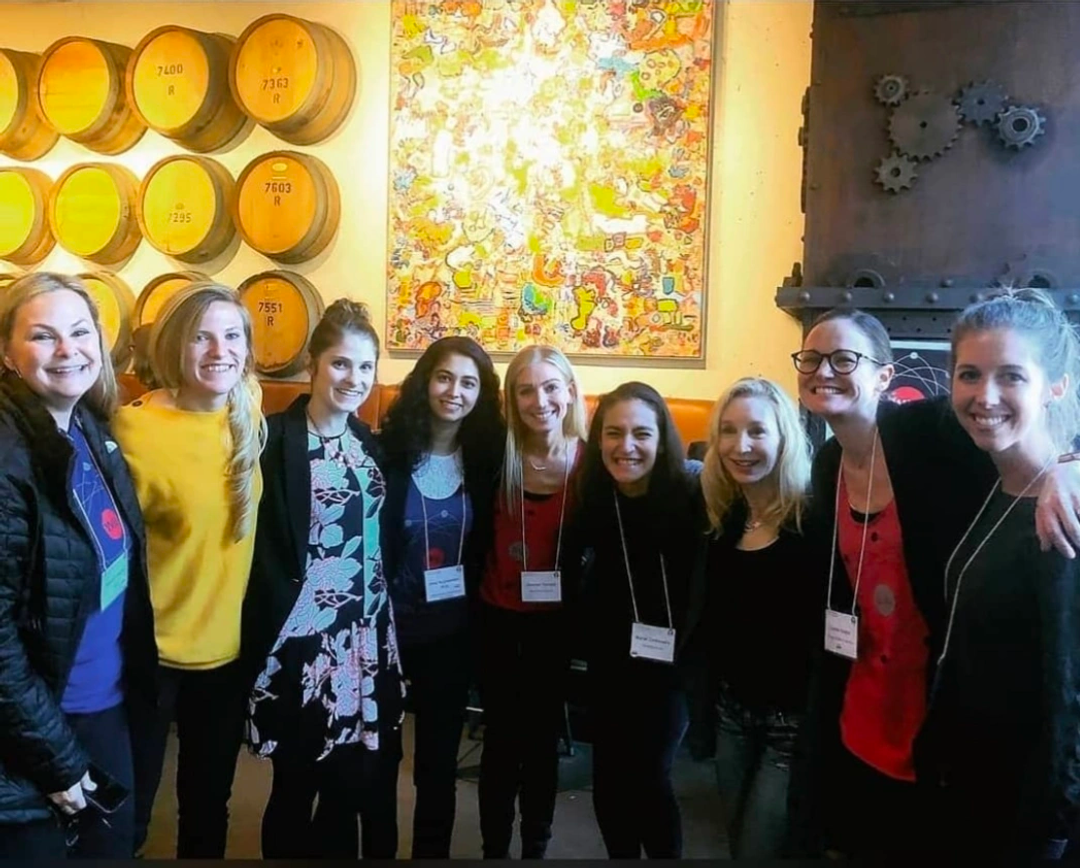
Women in Learning luncheon, 2019 (Credit: Jennifer Perusini)
Why do you love working in STEM?
It is so rewarding in so many ways. I always give advice to work as hard as you can on something in your life, but make sure you enjoy it. I love being able to be a trailblazer in a field where there’s so much left to discover. I’m so passionate about PTSD and solving the mental health crisis that any contribution that I could make is good enough for me.
There’s so much you could do with STEM. You can be an academic scientist, a lawyer, or a business person. Science is the basis of life and just being able to contribute to that huge body of knowledge is so exciting.